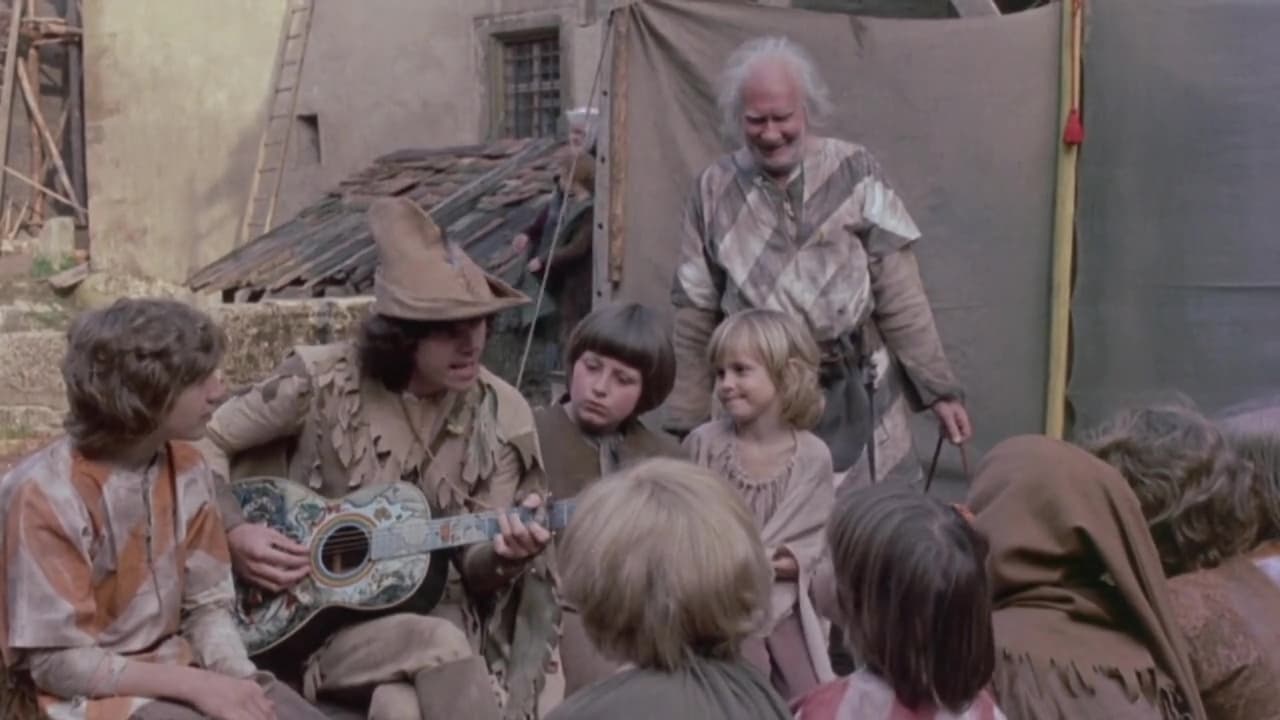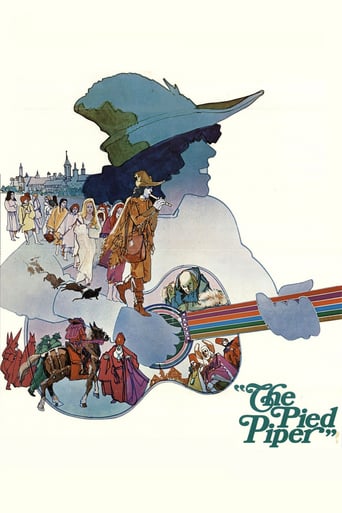Andrew Boone
Jacques Demy, at his best, was one of those directors who, like Charlie Chaplin, Akira Kurosawa, Jim Jarmusch, or Ernst Lubitsch, could ascend to the ranks of the greats without possessing the immense intellectual and artistic faculties of many of his contemporaries (i.e. Bergman, Tarkovsky, Godard, Pasolini, Antonioni, Buñuel, Bresson, et cetera). Unfortunately, Demy was never as consistent or as prolific as Chaplin or Kurosawa, for instance, who released one good-to-great film after another for such an extensive career. Nevertheless, films like "Lola" and particularly "The Umbrellas of Cherbourg" showed that cinema could be masterful without being artistically ambitious. Like Ozu, Demy proved that a true masterpiece could derive from emotional expressiveness, not only intellectual expressiveness.In addition to this emotional depth, the other impressive facet of Demy's cinema was, of course, his stylistic abilities. "The Umbrellas of Cherbourg" is truly one of the most stylistically impressive films ever made; visually sumptuous on a level entirely of its own. "The Young Girls of Rochefort" also demonstrates Demy's capacity for stylistically rich and luxurious cinema. We can even see it as early as "Le bel indifférent", his 1957 short film based on a Cocteau play. Resplendent visuals and extreme emotional potency — these two things Demy did as well as just about anyone to ever sit in a director's chair. "The Pied Piper", therefore, was a bit perplexing to me. It wasn't by any means poorly filmed, but like "The Model Shop", Demy's other previous film made outside of France, it simply lacked his usual flare for lush and lavish visuals. By comparison to his French films, "The Pied Piper" is very mundane, aesthetically speaking. As for the emotional potency, there is very little. There's not much plot, which in and of itself is absolutely fine by me, but the film seems to lack the emotional punch that we're used to from Demy, although naturally that will vary from person to person, to some degree. Furthermore, although the film is definitely a fantasy, which is in keeping with Demy's last film, "Donkey Skin", it is really quite gloomy in its mood. Demy, who is usually so filled with life and energy, is quite dreary here. Of course, "The Model Shop", an American film, was also rather dull in tone and lifeless compared to his usual work, so perhaps Demy is a product of his environment. Perhaps his milieu determines the nature of his films. Working in France, his films tend to be filled to the brim with warmth and vibrancy. Outside of France, he seems to be another filmmaker all together."The Pied Piper" is also extremely cynical. Demy, who has always been the classic romantic, takes a completely different look at humanity in this film. Instead of his characteristic enthusiasm for life and romantic fervor, "The Pied Piper" is deprived of anything that could be perceived as the kind of life-affirming fun and joyousness that permeated most of his previous films. Truly, he is unrecognizable here. The film, which is set in Germany in the 1300s, satirizes the Catholic Church and politicians, among other things, and paints a very grim portrait of humanity. It stars Jack Wild, John Hurt, Donald Pleasence, and others, including Donovan, who composed and performed the music for the film. As far as that goes, let's just say he's no Michel Legrand. One of the most ridiculous aspects of the film was the way that '60s/'70s culture so obtrusively pervaded a film that was meant to be set in the 14th century. Throughout the film, Donovan plays music on a style of six-string guitar that I'm almost certain did not exist at the time, and the music he plays sounds so laughably like the '60s/'70s that it became difficult to take anything I was seeing seriously. Generally a period piece makes an effort to disguise the modernity of its production, but not here. At times this film reminded me of the later work of Roberto Rossellini, such as "Blaise Pascal", "Cartesius", and especially "The Age of the Medici". Needless to say, those were historical films, and Demy's film is a fantasy, but the style and tone of the films are similar in some ways. While "The Pied Piper" is not truly a musical, Donovan's score and the songs he plays on a few occasions during the film certainly are a large part of defining the overall feel of the film, and he simply can't do for "The Pied Piper" what Legrand was able to do for "The Umbrellas of Cherbourg" or even "The Young Girls of Rochefort". Donovan's music here just isn't very good, and it contributes nothing of any real value to the film.At the end of the day, this film represents to me the paragon of mediocrity. It is certainly not a bad film, and certainly not a good one. The most interesting parts of the film are the social commentary and satire that Demy delivers with a surprisingly scathing and uncompromising bluntness, but even there, the film doesn't really say anything new or different than what we've seen many times before in cinema: Authority is corrupt and human vice takes root where man attempts to attain or maintain power. Demy exposes religious officials' use of apparent piety and ecclesiastical values as a thinly veiled disguise for greed and immorality. This really isn't anything original or profound in terms of new ideas in cinema, but it's interesting coming from Demy, who I wouldn't have pegged for this kind of cynicism.I can't say I'd recommend this film, but I don't think it's a real waste of time either. There will inevitably be those with whom the film clicks, but I'm guessing that the majority of experienced filmgoers won't take much away from this one.RATING: 5.00 out of 10 stars
Coventry
Back when I was a (allegedly disturbed) young child, "The Pied Piper of Hamelin" was my absolute favorite fairy-tale. I owned many tapes that were filled with bedtime stories and fairy-tales, but I mostly just listened to "The Pied Piper" because it featured fascinatingly morbid topics like the black plague, child abduction, rat infestations and a mysteriously sinister guy playing the flute. I was always convinced the premise of Robert Browning's eerie poem could form the basis of a series of unimaginably dark horror movies, but unfortunately there aren't that many. This British production, filmed on location in Germany, is a pretty great version but it's incredibly obscure for some reason and I spent an awful long time purchasing a decent copy. Now that I finally own it, I'm both thrilled about re-experiencing the familiar story lines as well as surprised about discovering entirely new story aspects I wasn't even aware of. The new (to me, at least) elements mostly handle about political and religious hypocrisy, so I presume that is the reason why they weren't included in any of the fairy-tale versions I grew up with. But it remains a fascinating story and a fabulously engaging film, only suffering from obvious and regrettable budget restrictions. Director and co-writer Jacques Demy had a clear and personal vision of the story, and it's definitely not a movie for young children to watch. Although never graphic or repulsive, "The Pied Piper" thrives on a disturbing atmosphere and it never evades any controversial themes, like the abuse of political power by the Catholic Church and the arranged marriages with minors. Donovan is excellent as the Piper, passing through Hamelin with a family of traveling circus artists. The burgomaster and the Baron (another splendid role for versatile super-actor Donald Pleasance) supposedly run the secluded little town, but they mainly obey the will of the uncanny red monks that always look over their shoulders. The friendly Jewish alchemist Melius is concerned about a threatening outbreak of the Bubonic plague, the power-hungry son of the Baron (John Hurt) is about to wed the under-aged burgomaster's daughter for financial reasons and the Pied Piper is the only person capable of freeing the town from its rat infestation. The script of this film is well filled and requires your absolute full attention, but the elaboration of the different story lines is highly compelling and the dialogs are enchanting. The costume designs and scenery are terrific and genuinely take you back to the dark and unsettling medieval times. Donovan, primarily a singer, also provides the film with a couple of great songs (most notably "They Call me the Pied Piper" and "Life has its ups and downs") and there are at least two near-brilliant and unforgettable sequences. Namely the rats breaking out of the wedding cake and a harrowing execution scene near the end. If you own "The Pied Piper", it's definitely a film to treasure.
dbdumonteil
Donovan sings three songs :outside the wonderful "sailing homeward",he performs two ditties "I'm the pied piper" (obvious) and "life has her (!) ups and her downs".It was filmed on location in Germany"The pied piper" ,like "Peau d'âne" which was released the year before, is a fairy tale ,but the mood is drastically different:I would say that "peau d'âne" is a movie for children that can appeal to adults,and "the pied piper" a movie for grown -ups which can appeal to children."Peau d'âne" is the bright Renaissance,with its châteaux de la Loire such as Chambord,and the forest and the country are not hostile,it's a providential world."The pied piper" is the dark Middle Ages;the beginning might have been influenced by Bergman's "the seventh seal":the wandering entertainers ,the plague ,the "sorcerer" ...The screen play is almost an original one:the famous legend lasts barely ten minutes ,the rest of the plot is completely new and extremely pertinent.Two worlds clash in Demy's work: the world of Melius the jew,that of an embryonic science and a desire to explain the things and to react to them:he comes much too soon and anyway the Jews suffered persecutions in those troubled times too:think that Louis IX,King of France of the thirteenth century ,forced the jews to wear the "rouelle",a sinister ancestor of Hitler's yellow star.And he became Saint-Louis, canonized by the Catholic Church.And there's the world of the bishops,sinister characters dressed in red,red as blood,who personify intolerance and ignorance :unlike Melius,they react to the bubonic plague by saying it's a God-sent ordeal,because men are sinners,they do not have to understand but they must be ready to repent and to mortify (self-flagellation).The wedding is revealing as well:listen to the bishop,the way he speaks to the bride:she is an impure human being,whose only way is to follow her husband's rule:till 1215,woman had no soul!Demy expresses his disgust with the famous scene of the wedding cake: big rats appear,they had entered the cathedral-pastry.It won't be long before the magnificent dessert crumble .And it will not be long before Hamelin itself and its hypocrite priests crumble like Sodom .So the pied piper is like God's angel ,leading Lot out of this doomed place.The children are the just men,sometimes sacrified as Hurt's unfortunate bride ,a child herself -a girl used to get married at an early age in those ancient times.Demy 's pessimism,which passed for melancholy in "Lola" , muted in "les parapluies de Cherbourg",seemed to disappear in "les demoiselles de Rochefort" and "peau d'âne", is glaring in "the pied piper".This is probably his darkest work.Thus ,one can forget his return to the ponderous comedy with Deneuve and Mastroianni in 1972"."The pied piper" remains an overlooked,ignored work.How many Demy's fans do not even know that this film exists?I urge them to see it,it's an essential part of his work,and maybe his swansong,because he was never to reach such heights afterward.

